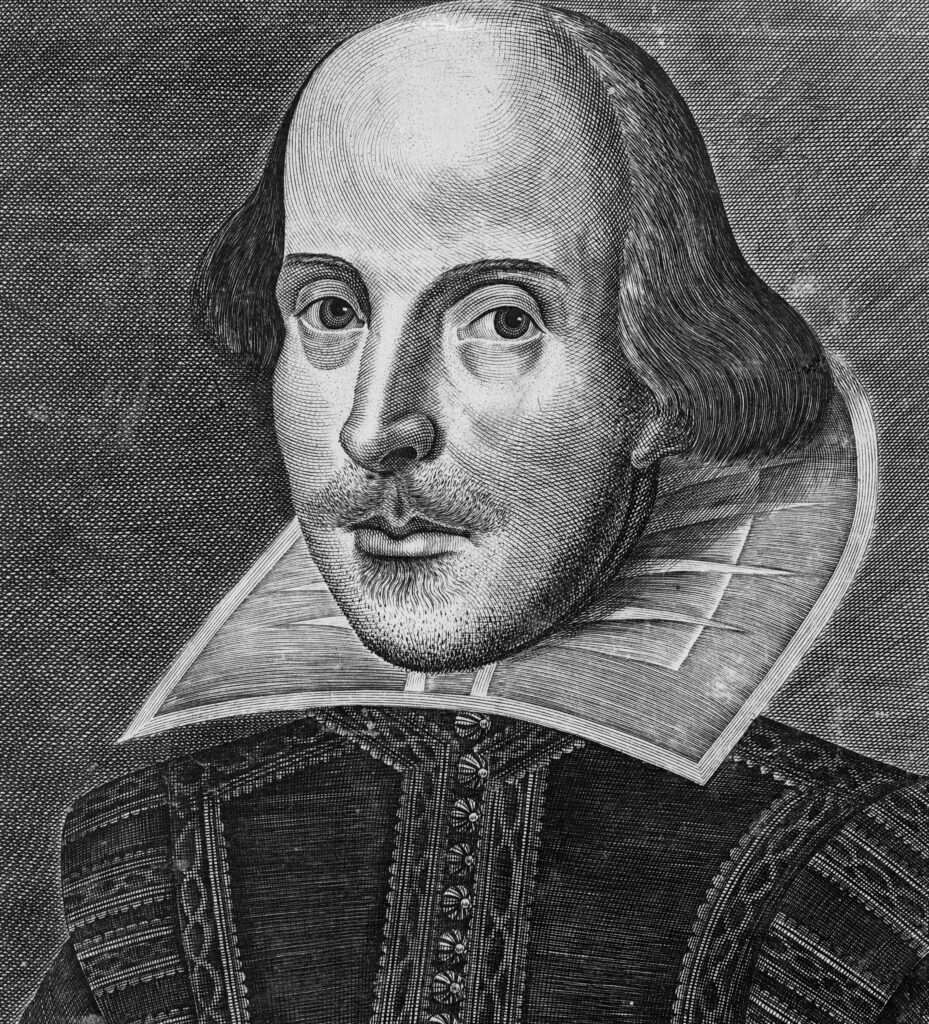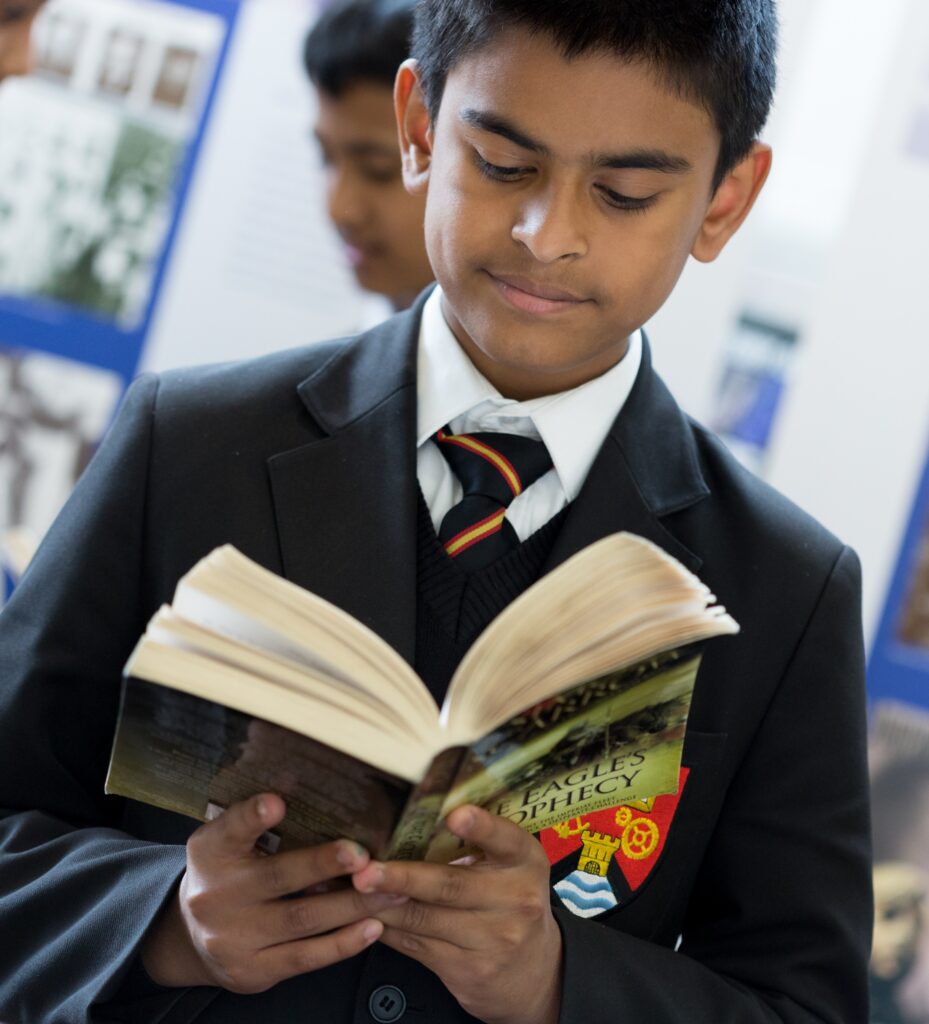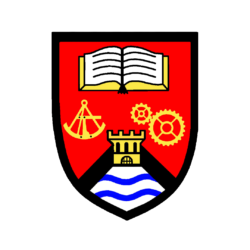Faculty of:
English
Head of Faculty:
Ms R. Ramnarain
Head of Department:
Ms R. Ramnarain
Members of staff:

Mr A. Ullah (2nd I/C)
Ms A. Maharaj (Head of Media Studies)
Ms W. Hewitt (2nd I/C of Year 8)
Ms L. Johnstone (Key Stage 5 Co-ordinator)
Ms L. Khatun
Ms B. Begum
Ms B. Ghale
Ms N. Reynolds
Mr J. Mansfield
Mrs R. Burton (Head of Whole School Literacy)
Mr M. Miah
Ms E. Mew
About the department:
GCSE English is an invaluable qualification expected by all higher education institutes and is a key aspect for any future career – therefore forming the crux of the school in raising aspirations and enabling our students to succeed in whichever endeavour they choose.
English consists of not only the study of language but develops how students communicate with society at large; it is the basis of all our understanding and perception. Through literature students have the chance to develop culturally and acquire knowledge of the best that has been thought and written. Studying English moulds our students into insightful and confident adults, giving them the tools to question, comprehend and comment on the world that they live in – eventually being part of positive change in civilisation.
Key stage 3 Curriculum:
In Years 7 – 9 students develop and extend their key skills in English Language (reading and writing), English Literature and Spoken Language. The schemes of work are split into four units:
1. Reading – Students to develop comprehension skills for a variety of texts, understanding characterisation, plot and context. Evaluation of writer’s choice of structure and language using linguistic and literary language and comparisons between texts.
2. Writing – Students to use the knowledge gained from analysing writer’s techniques from the reading unit to develop their own writing skills. Students are expected to not only coherently write about literature that they have read but also produce their own original creative texts; indulging in fiction and non-fiction writing.
3. Literature – Students to study a range of poetry and different Shakespeare plays, which include Macbeth, A Merchant of Venice and a unit focussing on Shakespeare’s Heroes and Villains. Students focus on technical language and structure as well as wider themes when analysing poetry. Students also endeavour to familiarise themselves with the language, context and common themes used by Shakespeare. There is development of both critical reading and analytical writing skills that is extended each year to ensure students are fully prepared for the depth of knowledge required as they progress in Key Stage 4.
4. Spoken Language (Speaking & Listening) – Speaking and listening opportunities were mapped into a Spoken Language Unit where students gave individual presentation to an audience of their peers expressing a viewpoint.
Year 9 is a cross over from Key Stage 3 – 4, which consists of skills and Units of work from both key stages.
Key stage 4 Curriculum:
English Language:
Students will read and be assessed on high-quality, challenging texts from the 19th, 20th and 21st centuries. Each text studied will represent a substantial piece of writing, making significant demands of students in terms of context, structure and the quality of language. The texts, across a range of genres and types, will support students in developing their own writing by providing effective models.
Texts will include:
Literature – Novel, Shakespeare Play, Cluster of Poetry
Extended Non-Fiction – Essays, Reviews and Journalistic Articles.
English Literature:
Students will develop knowledge and skills in reading, writing and critical thinking with the focus being on students reading and building comprehension skills of whole texts. The emphasis will be on deepening students’ understanding with skills and knowledge to support both current and future study
Texts will include: 
· At least one play by Shakespeare
· At least one 19th century novel
· A selection of poetry since 1789, including representative Romantic poetry
· Fiction or drama from the British isles from 1914 onwards
Students should also read widely within the range above to prepare them for ‘unseen’ texts question in the examination. These unseen texts may or may not be by authors whose works students have studied as texts.

Exam board: AQA
Extra-Curricular:
Students are taken on a range of trips including visits to the Globe theatre and local theatres. Author visits are also regularly facilitated in order to inspire students and develop a love of reading for pleasure.
KS5 Curriculum Summary:
AS/A Level:
In Year 12, students study papers themed around Love Through The Ages which includes a wide range of texts in preparation for EITHER: A Level Paper 1 or AS Level Paper 1 and 2.
Students study Othello by William Shakespeare, The Great Gatsby by F. Scott Fitzgerald which they compare with either an AQA Anthology of Pre-1900 poems or the short story The Awakening by Kate Chopin. All students study Unseen Prose although only AS Level students will be examined on this content. A Level students compare unseen love poetry in preparation for A Level Paper 1.
Students begin their 2500 word Non-Exam Assessment: an essay comparing any two texts and a topic of their choice.
In Year 13, students study Paper 2, themed around World War One and Its Aftermath. Students study a poetry anthology: Up The Line To Death by Brian Gardener, unseen prose from the period and they compare All Quiet On The Western Front by Enrich Remarque and My Boy Jack by David Haig.
Students continue their 2500 word Non-Exam Assessment: an essay comparing any two texts and a topic of their choice which is due in December of Year 13.
The Folder audit is given to students to ensure they are organising their folders correctly at A Level to promote good organisation, study skills and prepare you for university study.
GCSE Re-Take:
Students study towards English Language Paper 1 and Paper 2, first for the November exam sitting and then, if unsuccessful, for the summer sitting.
Extra-Curricular:
Students are taken on a range of trips including visits to the Globe theatre and local theatres. Author visits are also regularly facilitated in order to inspire students and develop a love of reading for pleasure.
AS and A Level students can expect trips to the Imperial War Museum and National Gallery to support their studies
Curriculum Summary
Electronic learning:

